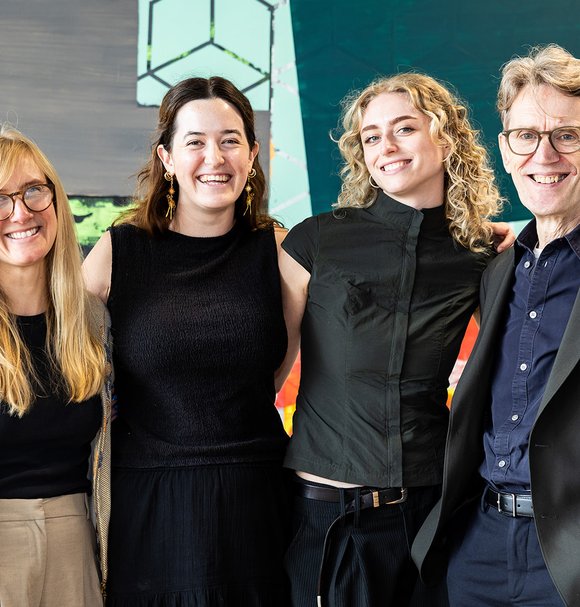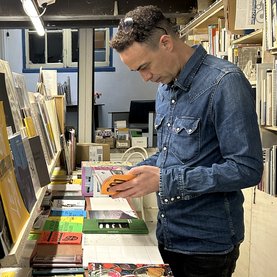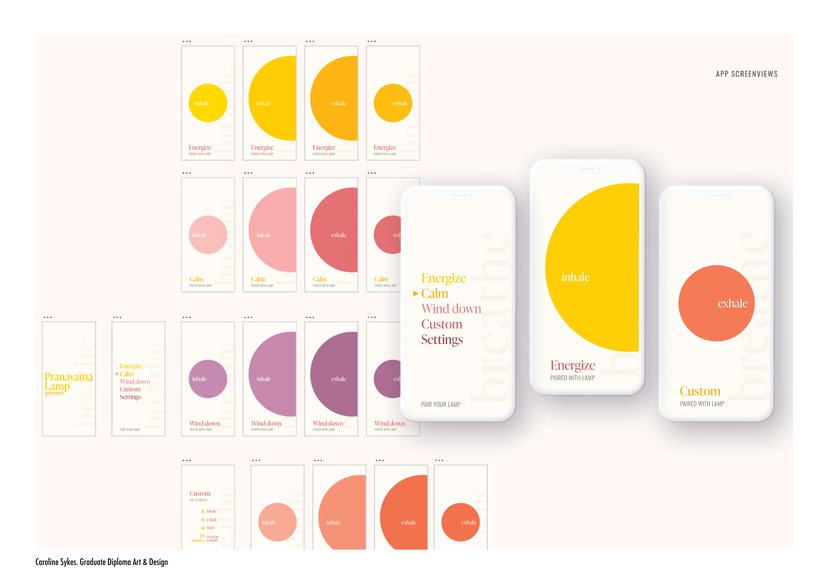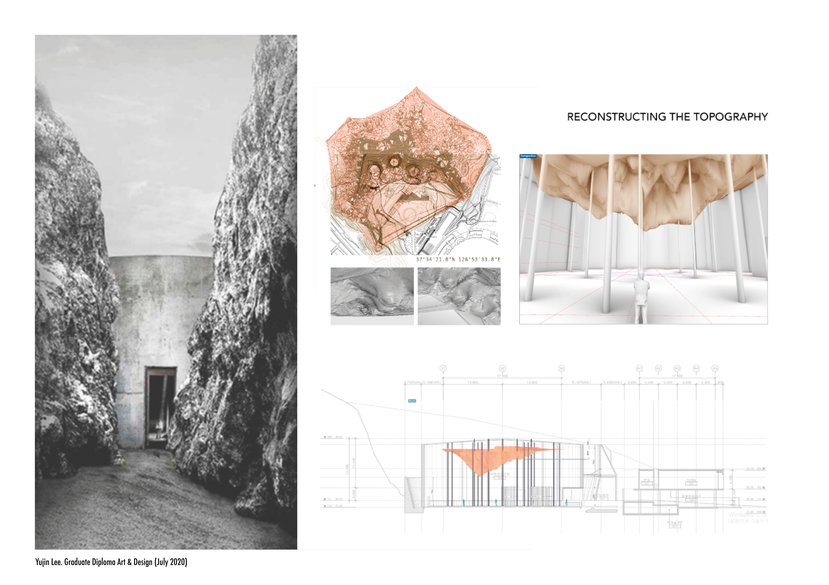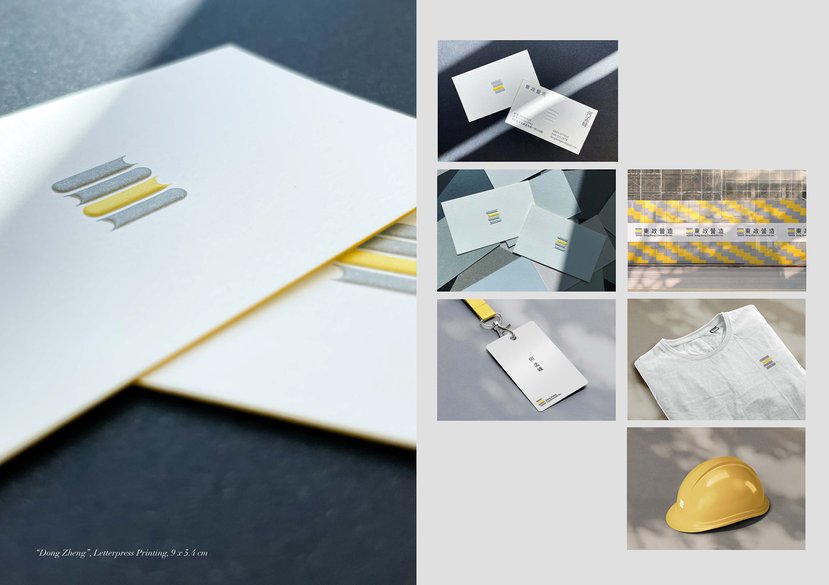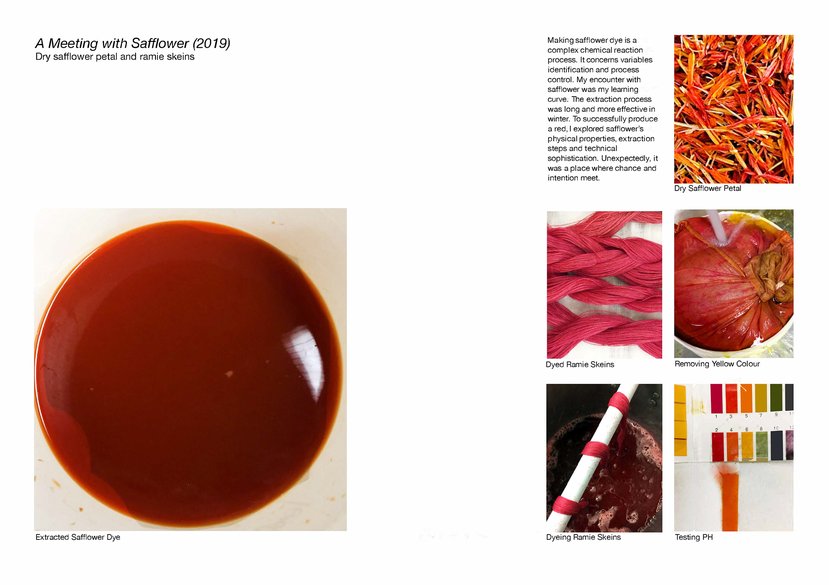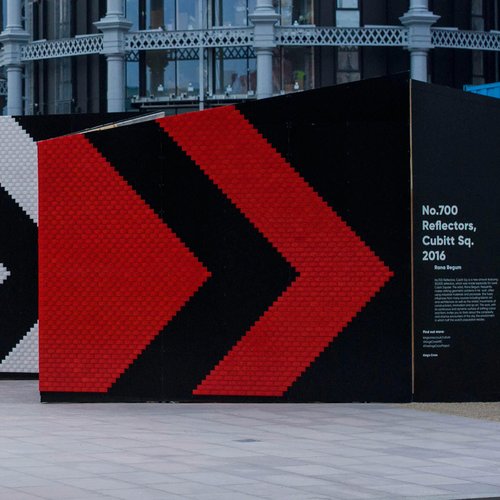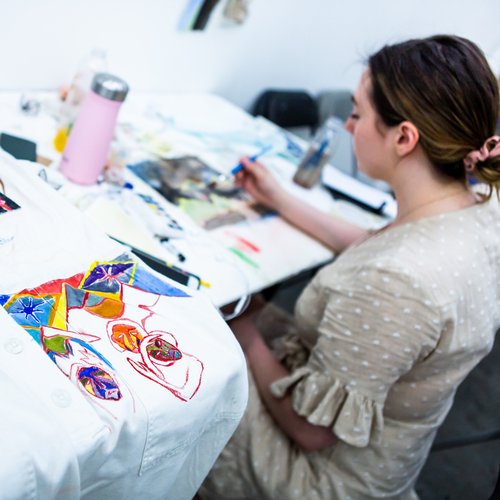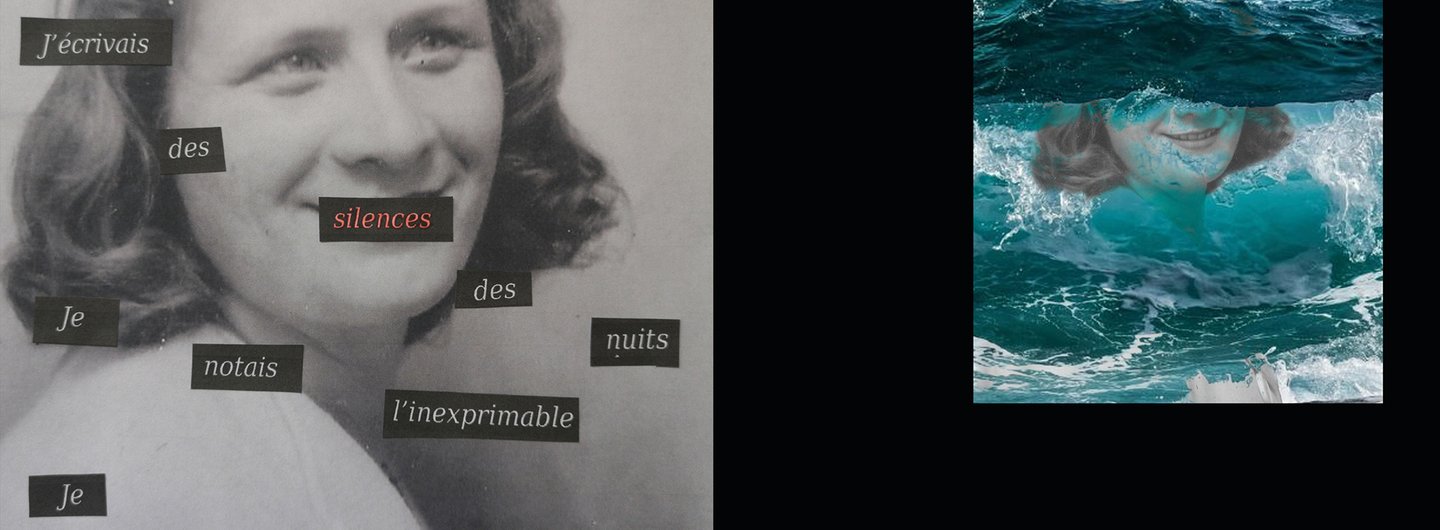
Develop a distinctive art and design portfolio for progression to postgraduate study or professional practice, with world-leading mentorship from the RCA.
Key details
Fees
- Regular fee: £1,700
- Early Bird fee: £1,500
Location
-
Live Online
Our Art & Design Portfolio Development short course uniquely prepares you for the intellectual and creative demands of postgraduate study at world-leading institutions, as well as for roles across the creative industries globally.
Our student-centred approach values and builds on the experience you bring. We recognise your strengths, understand your ambitions, and offer support as you refine your direction and hone your creative voice.
Led by a multidisciplinary team of academics, researchers, and practitioners from the Royal College of Art, the course challenges you to critically reflect on your current practice, interrogate your work, embrace new perspectives, and develop strategies for both creative and professional advancement.
Students who have successfully completed the Art and Design Portfolio Development Short Course will be entitled to a £500 fee discount from the full time yearly fee of any subsequent RCA Grad Diploma or Masters Programme they are successful in applying to.
About the course
Course structure
Outline
Through this short course, you will access the wealth of RCA staff expertise through a programme of taught sessions and individual mentoring. The four-week programme is structured on eight online taught sessions via Zoom in small, multidisciplinary, and globally diverse peer groups. Engagement and feedback are provided via collaborative digital platforms to maintain and promote independent work between sessions.
The carefully structured sessions and exercises are designed to support you through a period of critical reflection and engagement. You will be taken through an intensive process of positioning and presenting your practice, critically engaging with your work, and developing strategies and languages to communicate your research and practice.
Progression to Graduate Diploma
Upon completion of the programme, you will have an opportunity for an optional formal portfolio review with an Admission Tutor on the RCA Graduate Diploma. Students who have successfully completed the Art and Design Portfolio Development Short Course will be entitled to a £500 fee discount from the full time yearly fee of any subsequent RCA Grad Diploma or Masters Programme they are successful in applying to.
Week 1 Navigating Work and Practice (Sessions 1 & 2)
- Course Introduction: Programme outline and digital tools.
- Presentation: Staff PechaKucha presentations.
- Personal Tutor: Diagnostic tutorials.
- Open studio: Ambassador Q&A.
- Lecture: Portfolio as Practice.
- Presentation: Mini-PechaKucha Storytelling and Critical Reflection.
Week 2 Framing and Context (Sessions 3 & 4)
- Technical demonstration and workshop: InDesign Basics for Portfolio Design and Art Direction.
- Workshop: Art of Conversation: Constellation, Relations, & Correspondences.
- Workshop: Positioning practice and writing a positioning statement.
Week 3 Positioning and Situating (Sessions 5 & 6)
- Workshop: Copywriting for portfolio development.
- Workshop: Telling your story in critical commentary.
- Technical: InDesign surgery and drop-in support.
- Presentation: Peer-led group review (portfolio strategies and practitioner statement).
Week 4 Communication (Sessions 7 & 8)
- Personal Tutor: Feedback on your portfolio progress, alignment to progression intentions, and guidance to support completion.
- End of programme review: (resolution and clarity of communication).
Optional Formal Portfolio Review (Session 9)
You can opt to secure a formal portfolio review with an Admissions Tutor from the RCA Graduate Diploma. This will take place after one month of completing the programme. This is to allow you time to work on your portfolio, responding to feedback following the final review.
Personal Tutor
On starting the programme, you will meet your Personal Tutor. This relationship and access to personalised mentorship is unique. You will meet your tutor twice: at the beginning of the programme and in the final week. This diagnostic and reflective approach is vital to providing you with individual mentoring, guidance and feedback.
Who should attend?
Ideal for those intending to develop a focused art and design portfolio for progression to Graduate Diploma, MA or equivalent level, or if there is a portfolio requirement for MPhil/PhD application.
It is also appropriate for:
- Mid or senior roles in the creative industries, who seek professional and personal development.
- Practitioners from non-traditional art and design education backgrounds.
- Practitioners considering repositioning and/or changing specialism.
- Freelancers or self-employed art and design practitioners.
Please note that this is not a stipulation that you have a formal education qualification in art or design, as long as you have a sustained practice equivalent.
In previous cohorts, our globally spread students have ranged from practitioners in senior roles with significant career experience and/or freelance practice, to early career practitioners looking to pursue MA level study or professional development.
*Please note, we have supported the development of a student's PhD application where a portfolio of practice-based work was required. We do not support the development of the PhD application on this short course.
What will you learn?
Participants must bring an existing body of current creative work. This is vital to our individualised and student-centred approach. We reject the use of generic portfolio templates or a ‘house style’. This body of work is what you will be using from the start of the course.
You will learn to:
- a deep understanding of the role of the portfolio in art and design practice.
- clarity of positioning your practice and greater awareness of how to transform your concerns, interests, skills, and approaches into a communication language.
- strategies for the initiation and maintenance of a portfolio as practice and how to tailor it for different contexts, purposes and audiences.
- increased confidence in discussing and presenting your research and practice in a diverse multidisciplinary peer group.
- a clear understanding of your individual progression requirements and aspirations for furthering your practice and/or postgraduate study.
- Knowledge and technical skills to develop a portfolio using Adobe InDesign.
How will you learn?
You will engage and learn within a proven digital environment. There will be a blend of guided contact time through lectures, interactive workshops, presentations, small-group reviews, and one-to-one tutorials.
Outside of guided taught time, you will learn flexibly around your life, progressing your new portfolio at your own pace. You will have open access materials via our dedicated VLE and will be able to communicate through shared digital platforms where questions and feedback can be provided by students and staff.
The softwares you will engage with, include:
Moodle: Our dedicated RCA Virtual Learning Environment
Moodle hosts a range of valuable resources to enable the learning experience, these include; timetables, reading materials, course slides, and technical tutorials.
Zoom: Video conferencing service, tools and functionality
Engage live with your tutors and peers. The Zoom platform also hosts a range of functions and tools for non-verbal communication, written feedback and commentary, as well as smaller breakout rooms for group work. For privacy and ethical reasons, the breakout sessions will not be recorded.
Padlet: The Virtual Studio
If Zoom is our face-to-face contact, Padlet is our shared digital space for learning. The structured Padlet pages ensure continuous sharing, feedback, and discussion inside and outside taught sessions, creating a collaborative culture through each week of the programme.
What are the outcomes and benefits?
By the end of this course, you will have:
- A deep understanding of the role of the portfolio in art and design practice.
- Clarity of positioning your practice and greater awareness of how to transform your concerns, interests, skills, and approaches into a communication language.
- Strategies for the initiation and maintenance of a portfolio as practice and how to tailor it for different contexts, purposes and audiences.
- Increased confidence in discussing and presenting your research and practice in a diverse and multidisciplinary peer group.
- A clear understanding of your individual progression requirements and portfolio development.
The benefits to you include:
- Portfolio design, development and technical support.
- Identifying aims and requirements for progression at the RCA or other institutions, at levels 6, 7, and 8.
- Feedback and mentoring from a Personal Tutor at the beginning and end of the course.
- Subject-specific guidance from staff across the RCA schools.
- Guidance on academic skills and English language support.
- Opportunity for collaboration and networking.
Who are the course contributors?
The short course is convened by Course Leader Richard Nash, Designer, Publisher, and Researcher, as well as Senior Tutor (Research) and co-founder and chair of the RCA Artist Publishing Research group. Richard is supported by Artist, Researcher and Graduate Diploma Head of Programme, Gary Clough, alongside drawing on staff expertise across the RCA.
Our student Ambassadors are a core part of our teaching team. They are a group of current RCA students and alumni spanning schools across the college. Our ambassadors receive mentoring through the programme and offer short course attendees a unique access to the experience and insight of studying at the RCA.
How do I apply?
Applications are now open for March 2026. You can apply using our online form.
Applications will be assessed by the RCA course team every 2 weeks until the course is fully booked. We will inform all applicants by email within two weeks after they submit an application about whether or not they have been successful. Unfortunately we do not provide further feedback information.
If the course is fully booked and your application is successful, we will add your name to a waiting list.
Admission Criteria
- Good command of English with IELTS 5.5 minimum.
- A sustained practice through personal and/or professional experience and/or equivalent to BA level.
- A representative body of creative work (outcomes, process, developmental or experimentation).
- Ideally, a sound level of digital literacy and familiarity with Adobe InDesign and any specialism-specific software for the creation and/or presentation of work.
How will I know that my place is confirmed?
The offer of a place will only be secured and confirmed when the RCA receives 100 per cent of the course fee payment. Places are secured on a first-come basis on receipt of appropriate payment.
How can I pay for the course?
The course needs to be paid in full by one instalment and via the online payment system using a debit or credit card. Once you are offered a place on the course you will receive a secure online booking link. Please complete the registration and booking process to make the booking. Please ensure that you are using the most up to date version of your internet browser. We regret that it is not possible to pay the course fee by instalments.
Free Talk: Portfolio as Practice
Watch the latest IN SESSION talk: Portfolio as Practice.
In this talk editor and curator Dr Gerrie van Noord, Gary Clough and Richard Nash discuss the importance of art direction, critical writing and content curation in the construction of a portfolio.
Using examples selected from their own practice and publishing projects, they explore how the portfolio, as a self-authored publication, can function in different contexts and for different purposes.
This is an opportunity to learn about some of the strategies that are important to positioning yourself through your portfolio to fully exploit your creative potential in art and design practice.
Course Leader
Gallery
Contact us
Get in touch with us if you'd like to find out more about this or any of our other short courses.
short-courses@rca.ac.uk
